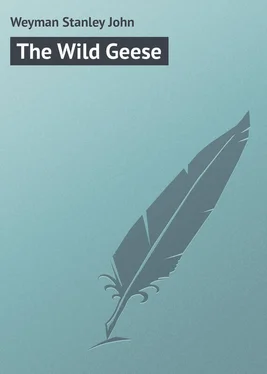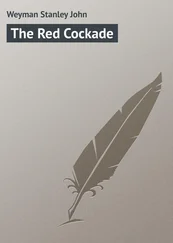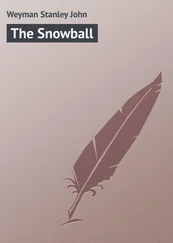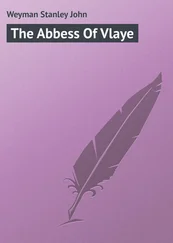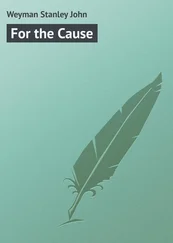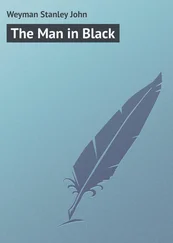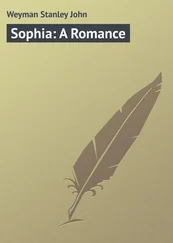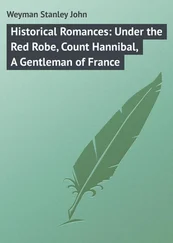Stanley Weyman - The Wild Geese
Здесь есть возможность читать онлайн «Stanley Weyman - The Wild Geese» — ознакомительный отрывок электронной книги совершенно бесплатно, а после прочтения отрывка купить полную версию. В некоторых случаях можно слушать аудио, скачать через торрент в формате fb2 и присутствует краткое содержание. Жанр: foreign_prose, на английском языке. Описание произведения, (предисловие) а так же отзывы посетителей доступны на портале библиотеки ЛибКат.
- Название:The Wild Geese
- Автор:
- Жанр:
- Год:неизвестен
- ISBN:нет данных
- Рейтинг книги:4 / 5. Голосов: 1
-
Избранное:Добавить в избранное
- Отзывы:
-
Ваша оценка:
- 80
- 1
- 2
- 3
- 4
- 5
The Wild Geese: краткое содержание, описание и аннотация
Предлагаем к чтению аннотацию, описание, краткое содержание или предисловие (зависит от того, что написал сам автор книги «The Wild Geese»). Если вы не нашли необходимую информацию о книге — напишите в комментариях, мы постараемся отыскать её.
The Wild Geese — читать онлайн ознакомительный отрывок
Ниже представлен текст книги, разбитый по страницам. Система сохранения места последней прочитанной страницы, позволяет с удобством читать онлайн бесплатно книгу «The Wild Geese», без необходимости каждый раз заново искать на чём Вы остановились. Поставьте закладку, и сможете в любой момент перейти на страницу, на которой закончили чтение.
Интервал:
Закладка:
That did not surprise the Colonel. But when the door opened a moment later, and Marsh came hastily into the room, and with averted face began to peer about for something, he was surprised.
"Where the devil's that snuff-box!" the sallow-faced man exclaimed. "Left it somewhere!" Then, looking about him to make sure that the door was closed. "See, here sir," he said awkwardly, "it's no business of mine, but for a man who has served as you say you have, you're a d – d simple fellow. Take my advice and don't go to Lemoine's at three, if you go at all."
"No?" the Colonel echoed.
"Can't you see they'll all be there to guy you?" Marsh retorted impatiently. He could not help liking the man, and yet the man seemed a fool! The next moment, with a hasty nod, he was gone. He had found the box in his pocket.
Colonel Sullivan smiled, and, after carefully brushing the crumbs from his breeches, rose from the table. "A good man," he muttered. "Pity he has not more courage." The next moment he came to attention, for slowly past the window moved Captain Payton himself, riding Flavia's mare, and talking with one of the young bloods who walked at his stirrup.
The man and the horse! The Colonel began to understand that something more than wantonness had inspired Payton's conduct the previous night. Either he had been privy from the first to the plot to waylay the horse; or he had bought it cheaply knowing how it had been acquired; or – a third alternative – it had been placed in his hands, to the end that his reputation as a fire-eater might protect it. In any event, he had had an interest in nipping inquiry in the bud; and, learning who the Colonel was, had acted on the instant, and with considerable presence of mind.
The Colonel looked thoughtful; and though the day was fine for Ireland – that is, no more than a small rain was falling – he remained within doors until five minutes before three o'clock. Bale had employed the interval in brushing the stains of travel from his master's clothes, and combing his horseman's wig with particular care; so that it was a neat and spruce gentleman who at five minutes before three walked through Tralee, and, attending to the directions he had received, approached a particular door, a little within the barrack gate.
Had he glanced up at the windows he would have seen faces at them; moreover, a suspicious ear might have caught, as he paused on the threshold, a scurrying of feet, mingled with stifled laughter. But he did not look up. He did not seem to expect to see more than he found, when he entered – a great bare room with its floor strewn with sawdust and its walls adorned here and there by a gaunt trophy of arms. In the middle of the floor, engaged apparently in weighing one foil against another, was a stout, dark-complexioned man, whose light and nimble step, as he advanced to meet his visitor, gave the lie to his weight.
Certainly there came from a half-opened door at the end of the room a stealthy sound as of rats taking cover. But Colonel John did not look that way. His whole attention was bent upon the Maître d'Armes, who bowed low to him. Clicking his heels together, and extending his palms in the French fashion, "Good-morning, sare," he said, his southern accent unmistakable. "I make you welcome."
The Colonel returned his salute less elaborately. "The Maître d'Armes Lemoine?" he said.
"Yes, sare, that is me. At your service!"
"I am a stranger in Tralee, and I have been recommended to apply to you. You are, I am told, accustomed to give lessons."
"With the small-sword?" the Frenchman answered, with the same gesture of the open hands. "It is my profession."
"I am desirous of brushing up my knowledge – such as it is."
"A vare good notion," the fencing-master replied, his black beady eyes twinkling. "Vare good for me. Vare good also for you. Always ready, is the gentleman's motto; and to make himself ready, his high recreation. But, doubtless, sare," with a faint smile, "you are proficient, and I teach you nothing. You come but to sweat a little." An observant person would have noticed that as he said this he raised his voice above his usual tone.
"At one time," Colonel John replied with simplicity, "I was fairly proficient. Then – this happened!" He held out his right hand. "You see?"
"Ah!" the Frenchman said in a low tone, and he raised his hands. "That is ogly! That is vare ogly! Can you hold with that?" he added, inspecting the hand with interest. He was a different man.
"So, so," the Colonel answered cheerfully.
"Not strongly, eh? It is not possible."
"Not very strongly," the Colonel assented. His hand, like Bale's, lacked two fingers.
Lemoine muttered something under his breath, and looked at the Colonel with a wrinkled brow. "Tut – tut!" he said, "and how long are you like that, sare?"
"Seven years."
"Pity! pity!" Lemoine exclaimed. Again he looked at his visitor with perplexed eyes. After which, "Dam!" he said suddenly.
The Colonel stared.
"It is not right!" the Frenchman continued, frowning. "I – no! Pardon me, sare, I do not fence with les estropiés . That is downright! That is certain, sare. I do not do it."
If the Colonel had been listening he might have caught the sound of a warning cough, with a stir, and a subdued murmur of voices – all proceeding from the direction of the inner room. But he had his back to the half-opened door and he seemed to be taken up with the fencing-master's change of tone. "But if," he objected, "I am willing to pay for an hour's practice?"
"Another day, sare. Another day, if you will."
"But I shall not be here another day. I have but to-day. By-and-by," he continued with a smile as kindly as it was humorous, "I shall begin to think that you are afraid to pit yourself against a manchot !"
"Oh, la! la!" The Frenchman dismissed the idea with a contemptuous gesture.
"Do me the favour, then," Colonel John retorted. "If you please?"
Against one of the walls were three chairs arranged in a row. Before each stood a boot-jack, and beside it a pair of boot-hooks; over it, fixed in the wall, were two or three pegs for the occupant's wig, cravat, and cane. The Colonel, without waiting for a further answer, took his seat on one of the chairs, removed his boots, and then his coat, vest, and wig, which he hung on the pegs above him.
"And now," he said gaily, as he stood up, "the mask!"
He did not see the change – for he seemed to have no suspicion – but as he rose, the door of the room behind him became fringed with grinning faces. Payton, the two youths who had leant from the window of the inn and who had carried his words, a couple of older officers, half a dozen subalterns, all were there – and one or two civilians. The more grave could hardly keep the more hilarious in order. The curtain was ready to go up on what they promised themselves would be the most absurd scene. The stranger who fought no duels, yet thought that a lesson or two would make him a match for a dead-hand like Payton – was ever such a promising joke conceived? The good feeling, even the respect which the Colonel had succeeded in awakening for a short time the evening before, were forgotten in the prospect of such a jest.
The Frenchman made no further demur. He had said what he could, and it was not his business to quarrel with his best clients. He took his mask, and proffered a choice of foils to his antagonist, whose figure, freed from the heavy coat and vest of the day, and the overshadowing wig, seemed younger and more supple than the Frenchman had expected. "A pity, a pity!" the latter said to himself. "To have lost, if he ever was professor, the joy of life!"
"Are you ready?" Colonel John asked.
"At your service, sare," the Maître d'Armes replied – but not with much heartiness. The two advanced each a foot, they touched swords, then saluted with that graceful and courteous engagement which to an ignorant observer is one of the charms of the foil. As they did so, and steel grated on steel, the eavesdroppers in the inner room ventured softly from ambush – like rats issuing forth; soon they were all standing behind the Colonel, the sawdust, and the fencers' stamping feet as they lunged or gave back, covering the sound of their movements.
Читать дальшеИнтервал:
Закладка:
Похожие книги на «The Wild Geese»
Представляем Вашему вниманию похожие книги на «The Wild Geese» списком для выбора. Мы отобрали схожую по названию и смыслу литературу в надежде предоставить читателям больше вариантов отыскать новые, интересные, ещё непрочитанные произведения.
Обсуждение, отзывы о книге «The Wild Geese» и просто собственные мнения читателей. Оставьте ваши комментарии, напишите, что Вы думаете о произведении, его смысле или главных героях. Укажите что конкретно понравилось, а что нет, и почему Вы так считаете.
